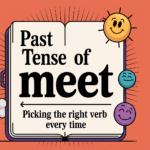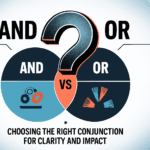Past Tense of Meet: Picking the Right Verb Every Time
Mastering English verbs—especially irregular ones—is a crucial part of writing with clarity and confidence. One of the most common, “Past Tense of Meet” yet often misunderstood verbs is “meet.” While it may seem straightforward, understanding how to use its past forms—**”met” as the simple past and past participle—**requires more than rote memorization. This guide breaks […]
Read More »









